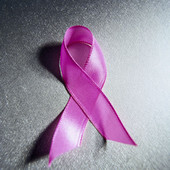
THURSDAY, Sept. 22 (HealthDay News) — A new study finds that black and Hispanic women with breast cancer suffer more stress than white women, and the researchers connected the extra stress to more aggressive tumors.
But, the study authors cautioned that the research is preliminary and doesn’t provide insight into whether the women’s stress levels already were high before diagnosis, whether the stress levels increased after diagnosis, or whether the increased stress caused the cancer to be more aggressive.
Still, the findings point to one possible — if unconfirmed — explanation why breast cancer is generally worse in black and Hispanic women, said study lead author Garth H. Rauscher.
“One possible reason for that, among others, could be differences in the role of stress in influencing the development of breast cancer,” said Rauscher, associate professor of epidemiology at the University of Illinois at Chicago’s School of Public Health.
The researchers studied 989 breast cancer patients who had been recently diagnosed with the disease. Within two to three months after their diagnosis, the women responded to surveys about their levels of stress; the surveys asked about issues such as their levels of loneliness, anxiety and fear.
The investigators also used medical tests to examine the aggressiveness of the women’s tumors.
Eleven percent of the 397 white women in the study reached a level of stress that the researchers considered to be elevated, Rauscher said. However, the stress levels were about twice as high for the two minority groups: 24 percent of the 181 Hispanic women and 22 percent of the 411 black women reported elevated stress. (Other minority groups weren’t included in the study.)
Rauscher said more research is needed because the study didn’t answer how stress might be linked to the aggressiveness of tumors. Did the stress come first? Or the tumors? Or did both appear at the same time?
“If we’d interviewed these women one year or five years or 10 years prior to diagnosis, would these same women have reported greater levels of stress than their counterparts in the study?” he asked. “It’s fairly reasonable to assume there’s a correlation in the level of stress they report after diagnosis and what they reported prior to that, but we don’t have any data to say that’s true.”
However, Rauscher said the new research is consistent with previous findings from studies in rodents. Those studies found that severe stress and social isolation boosted the risk of breast cancer, he noted.
The study was to be presented this week at the American Association for Cancer Research Conference on the Science of Cancer Health Disparities, in Washington D.C. The findings should be viewed as preliminary until they are published in a peer-reviewed medical journal.
Dr. Laura Kruper, an assistant professor and cancer surgeon at City of Hope Cancer Center in Duarte, Calif., cautioned that the study doesn’t allow any conclusions to be made about how stress is connected to more aggressive tumors. “To clearly show an association between higher stress levels and aggressiveness of breast cancer, patients would have to be followed for many years prior to diagnosis to see if patients with higher levels of stress developed more aggressive forms of cancer,” she said.
Kruper said the idea that stress causes cancer is unproven, although it’s possible. A cancer diagnosis can certainly cause stress, she said.
“Some patients need temporary anti-anxiety medications. Most only need the medications during a short time during their treatment,” she said. “We often prescribe low-dose antidepressants, not only to help with mood, which can definitely be impacted by a breast cancer diagnosis, but also to help combat the side effects of the breast cancer treatments such as hot flashes.”
More information
The U.S. National Cancer Institute has a fact sheet about psychological stress and cancer.

